An agency agreement is a legally binding contract between a company and an agent, in which the agent agrees to represent the company in certain matters. This type of agreement is commonly used in situations where a company wishes to outsource certain aspects of their business, such as sales or marketing.
In a sales buying agency agreement, for example, the agent is appointed as the sales representative of the company, with specific terms and conditions outlined in the contract, including the nature of the relationship (whether it is exclusive or non-exclusive), the process for terminating the agreement, and the method for calculating commissions.
Table of Contents
Agency Agreement Templates
Agency agreement templates are pre-designed legal documents that provide a framework for creating an agency agreement between a principal and an agent. These templates outline the key terms and conditions of the agency relationship, allowing both parties to establish their rights, obligations, and responsibilities in a clear and standardized manner.
Agency agreement templates typically include sections that cover important aspects of the agreement, such as the scope of the agency relationship, the specific tasks or services to be performed by the agent, the duration of the agreement, and the compensation or commission structure. They may also address matters such as confidentiality, termination conditions, dispute resolution, and any other specific provisions relevant to the nature of the agency.
Using an agency agreement template can save time and effort by providing a starting point for creating a legally binding and comprehensive agreement. These templates can be customized to reflect the specific needs and requirements of the agency relationship, ensuring that both the principal and the agent are adequately protected.
Advantages, disadvantages and risks of agency agreement

Advantages of agency agreements include:
Low costs
Agency agreements do not require significant investments in terms of money, resources or time.
Experience and knowledge
Agencies have specialized knowledge and experience in their field which can be beneficial to companies.
Increased sales and market reach
Agencies can help companies expand their market reach and increase sales.
Reduced risk
Companies can reduce the risk of losses by working with an agency instead of taking on the full responsibility of a business venture.
Disadvantages of agency agreements include:
Limited control
Companies may have less control over the outcome of the business venture when working with an agency.
Dependence on the agency
Companies may become dependent on the agency for certain business activities and may be at a disadvantage if the agency is not performing up to expectations.
Costs
Agencies may charge high fees for their services which can be a significant cost for companies.
Risks associated with agency agreements include:
Breach of contract
The agency may not fulfill the terms of the agreement which can lead to legal disputes.
Conflicting interests
The agency may have conflicting interests with the company which can negatively impact the business venture.
Reputation
Companies may be associated with the actions and reputation of the agency which can have a negative impact on their own reputation.
Miscommunication and lack of coordination
Miscommunication or lack of coordination between the company and the agency can lead to errors and delays in the business venture.
How to use an agency agreement effectively?
Here are a few steps companies can take to use an agency agreement effectively:
- Clearly define the scope of the agency’s responsibilities and the terms of the agreement in a written contract.
- Clearly outline the expectations and goals of the company, and make sure the agency understands them.
- Clearly outline the payment terms, timelines and any other important details in the agreement to avoid any misunderstandings.
- Communicate regularly with the agency to ensure that both parties are on the same page and to address any issues that may arise.
- Establish performance metrics and a system for monitoring and evaluating the agency’s performance, and ensure that they are met.
- Provide the agency with all the necessary resources and support they need to complete the job.
- Be open to feedback and suggestions from the agency, and be willing to make changes if necessary.
- Review and renew the agreement as needed to ensure it continues to meet the company’s needs.
Elements to consider in agency agreements
When entering into an agency agreement, there are several factors that companies should consider in order to ensure that the agreement is beneficial for both parties and to minimize the risks associated with the agreement.
Scope of Services: One of the most important factors to consider is the scope of services that the agency will provide. The scope of services should be clearly defined in the agreement and should be specific to the company’s needs. The company should also outline the expectations and goals for the agency to achieve.
Payment Terms: Companies should consider the payment terms for the agency’s services. The payment terms should be clearly outlined in the agreement and should include when the payments will be made, the amount of the payments, and any penalties for late payments.
Duration of the Agreement: Companies should also consider the duration of the agreement. The duration of the agreement should be reasonable and should take into account the time required to achieve the company’s goals. The company should also have the option to terminate the agreement if the agency is not meeting the company’s expectations.
Confidentiality: Companies should also consider the confidentiality of the information that is shared with the agency. The agreement should include a confidentiality clause that prohibits the agency from disclosing any confidential information to third parties without the company’s consent.
Non-competition: Companies should also consider including a non-competition clause in the agreement. The non-competition clause should prohibit the agency from working with competitors of the company during the term of the agreement and for a certain period of time after the agreement is terminated.
Indemnification: Companies should also consider including an indemnification clause in the agreement. The indemnification clause should require the agency to indemnify the company for any losses that the company may incur as a result of the agency’s actions.
Dispute Resolution: Companies should also consider the dispute resolution process in the event of a disagreement between the company and the agency. The agreement should include a process for resolving disputes such as mediation, arbitration, or litigation.
Compliance with laws: Companies should also consider whether the agency is in compliance with all relevant laws and regulations. This will minimize the risk of legal disputes and penalties.
Insurance: Companies should also consider whether the agency has the necessary insurance to cover any potential losses. This will minimize the risk of financial losses for the company in case of an accident or other unexpected event.
Performance metrics: Companies should also consider performance metrics for the agency. The company should establish a system for monitoring and evaluating the agency’s performance, and ensure that the agency is meeting the company’s expectations.
Communication: Companies should also consider the communication between the company and the agency. The company should communicate regularly with the agency to ensure that both parties are on the same page and to address any issues that may arise.
Renewal: Companies should also consider whether to renew the agreement once it expires. The company should review the agreement and renew it if it continues to meet the company’s needs.
Examples of Types of Agencies
There are several types of agencies that companies may work with, some examples include:
Advertising agencies
These agencies specialize in creating and executing advertising campaigns for companies. They may provide services such as market research, creative development, media planning and buying, and campaign management.
Public relations agencies
These agencies specialize in managing a company’s public image and reputation. They may provide services such as media relations, crisis management, event planning, and social media management.
Marketing agencies
These agencies specialize in developing and executing marketing strategies for companies. They may provide services such as market research, branding, product development, and promotional campaigns.
Recruitment agencies
These agencies specialize in finding and placing job candidates for companies. They may provide services such as resume screening, interview scheduling, and background checks.
Digital marketing agencies
These agencies specialize in digital marketing services, such as search engine optimization (SEO), pay-per-click (PPC) advertising, social media management, and website design and development.
Sales agencies
These agencies specialize in representing a company’s products or services to potential buyers. They may provide services such as market research, lead generation, and sales support.
Travel agencies
These agencies specialize in providing travel-related services such as booking flights, hotels, cruises and rental cars, arranging tours and activities, and providing travel insurance.
Event planning agencies
These agencies specialize in planning and organizing events such as conferences, trade shows, and corporate events.
Translation agencies
These agencies specialize in translation services for companies that require translation of documents, websites, or other materials.
Agency Agreement – How to Guide
An agency agreement is a legal contract between a principal (the company or individual that is hiring the agent) and an agent (the person or company being hired to represent the principal). The agreement outlines the responsibilities of both parties, as well as the terms and conditions of the agency relationship.
Here is a detailed guide on how to create an agency agreement:
Define the scope of the agency relationship: The first step in creating an agency agreement is to clearly define the scope of the agency relationship. This includes outlining the specific products or services that the agent will be responsible for selling or promoting on behalf of the principal.
Identify the parties involved: The agreement should clearly identify the principal and the agent, including their full legal names and addresses.
Define the responsibilities of the principal: The agreement should outline the responsibilities of the principal, including providing the necessary resources and support for the agent to perform their duties.
Define the responsibilities of the agent: The agreement should also outline the responsibilities of the agent, including promoting and selling the products or services on behalf of the principal, as well as reporting any relevant sales or marketing data to the principal.
Establish a commission structure: The agreement should establish a commission structure for the agent, outlining how much the agent will be paid for each sale or for reaching certain sales targets.
Set a term for the agreement: The agreement should set a specific term for the agency relationship, outlining the start and end dates of the agreement.
Include a termination clause: The agreement should include a termination clause that outlines the conditions under which either party can terminate the agreement.
Include a non-competition clause: The agreement should include a non-competition clause, which prohibits the agent from working with competitors of the principal during the term of the agreement.
Include an arbitration clause: The agreement should include an arbitration clause, which states that any disputes between the parties will be resolved through arbitration, rather than through the court system.
Have both parties sign and date the agreement: Once the agreement has been drafted, both the principal and the agent should sign and date the agreement. It is advisable to have the agreement reviewed by legal counsel before it is signed.
Keep a copy of the agreement: Both parties should keep a copy of the signed agreement for their records.
FAQs
How long is the term of an agency agreement?
The term of an agency agreement can vary, but it is typically set for a specific period of time, such as one year. The term of the agreement should be outlined in the agreement.
Can an agency agreement be terminated?
Yes, an agency agreement can be terminated by either party under specific conditions outlined in the termination clause of the agreement.
What is a non-competition clause?
A non-competition clause is a clause in an agency agreement that prohibits the agent from working with competitors of the principal during the term of the agreement.
What is an arbitration clause?
An arbitration clause is a clause in an agency agreement that states that any disputes between the parties will be resolved through arbitration, rather than through the court system.
Do I need a lawyer to create an agency agreement?
It is advisable to consult with a lawyer before drafting an agency agreement to ensure that it is in compliance with the relevant laws and regulations.

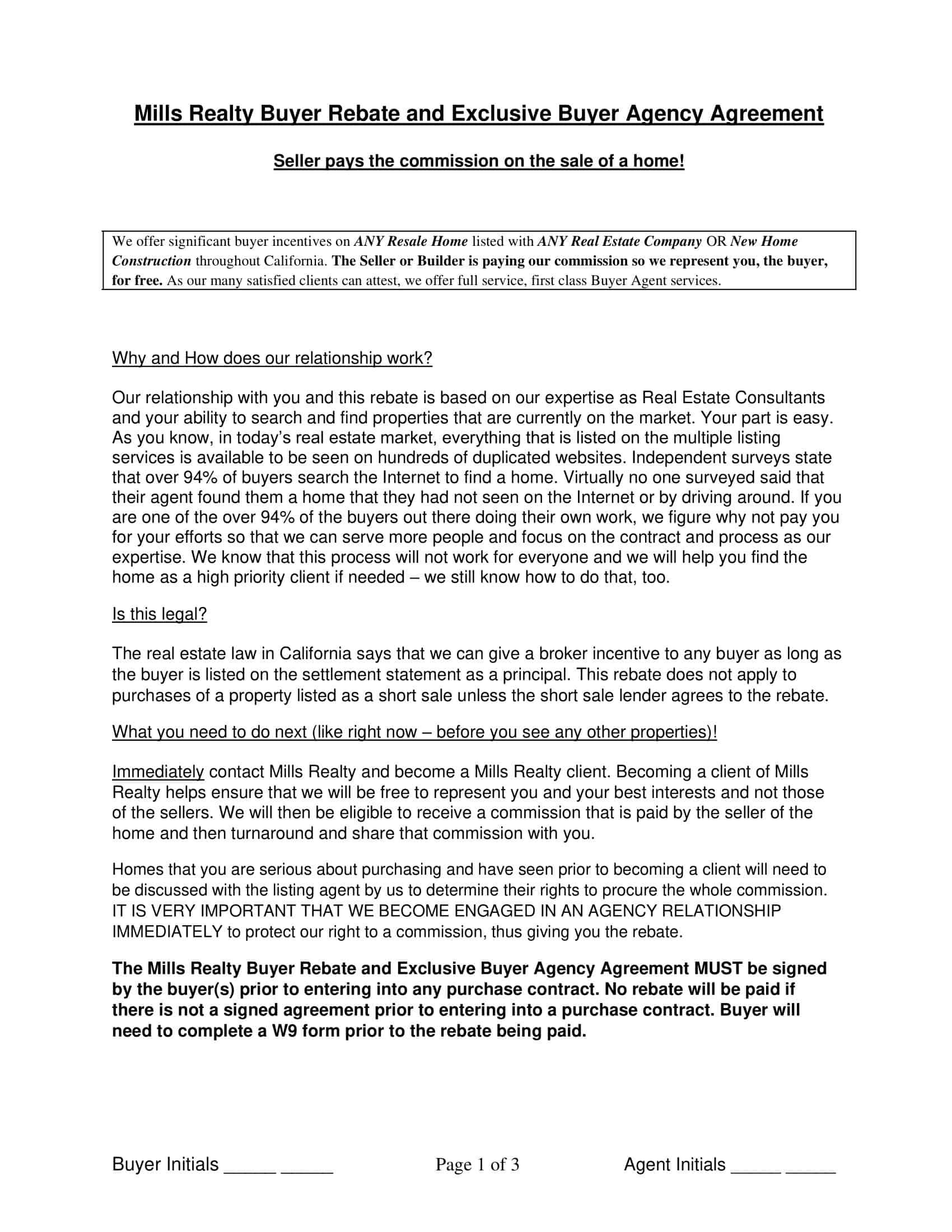








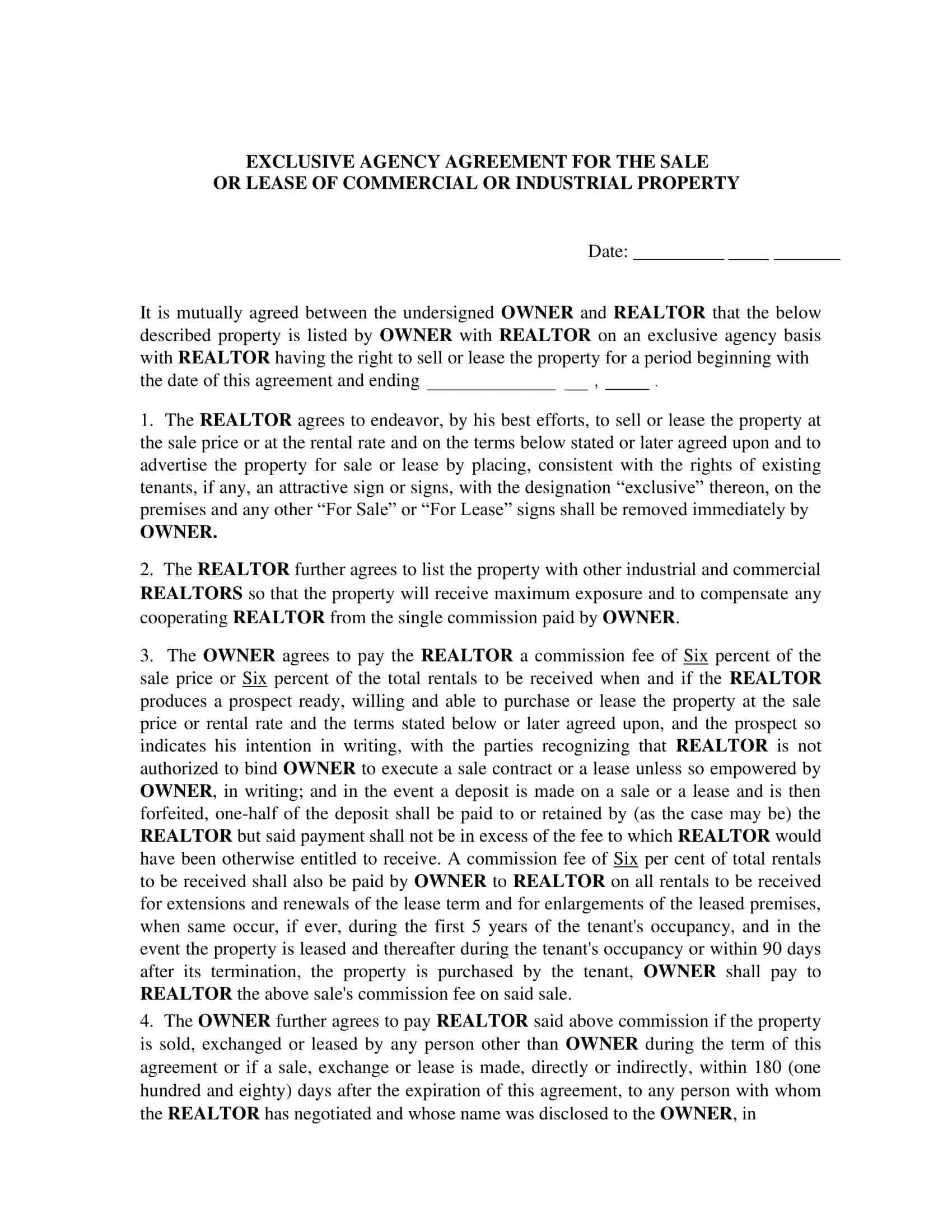

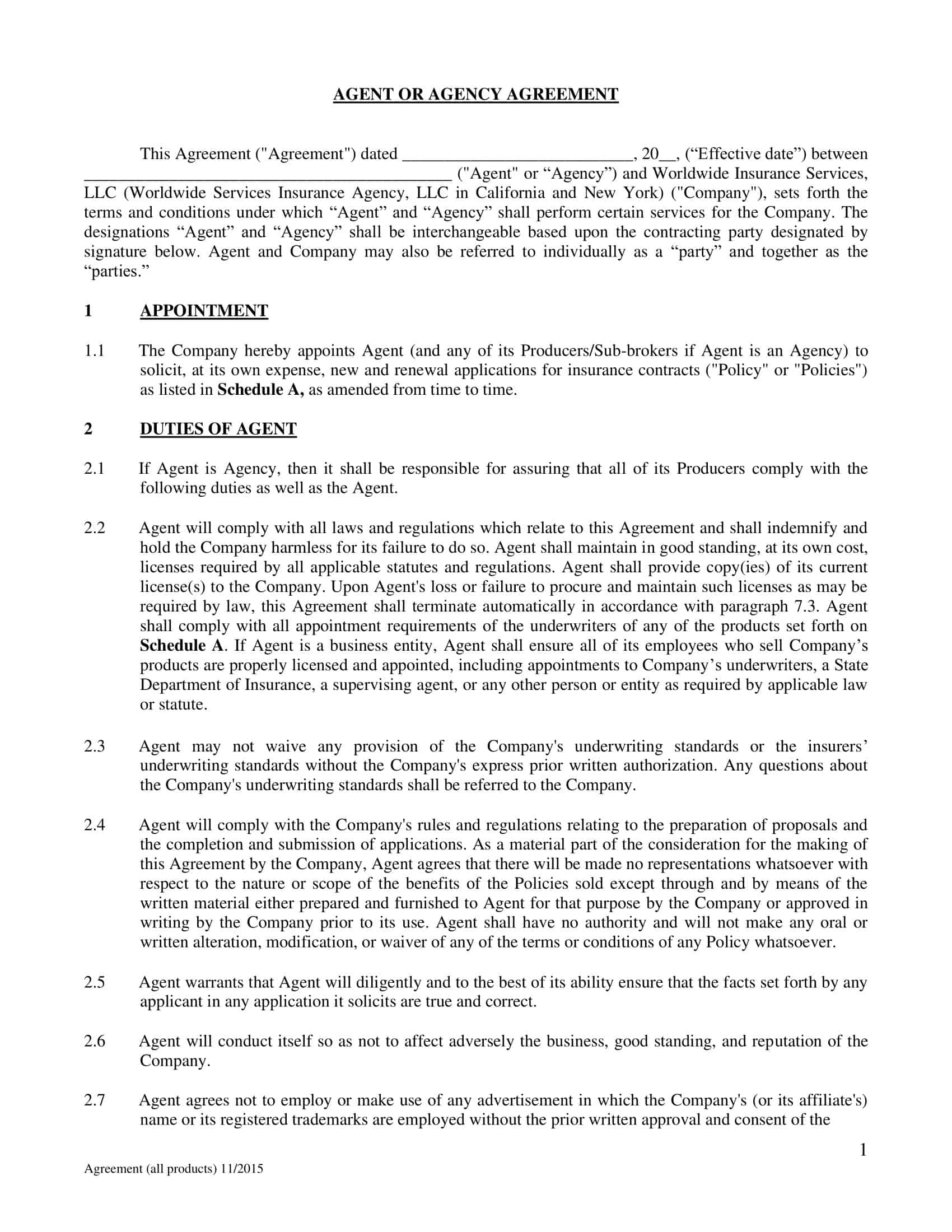

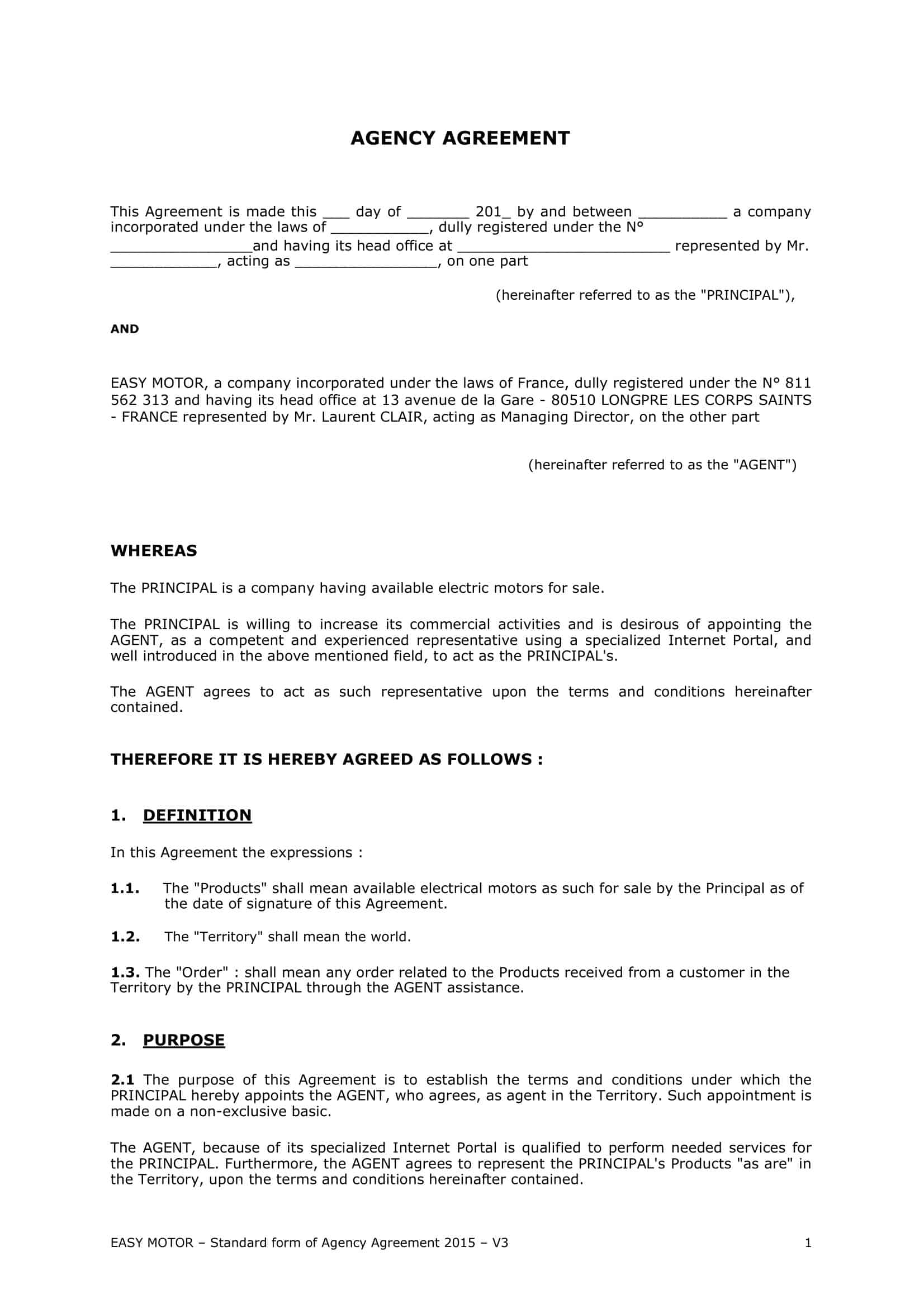
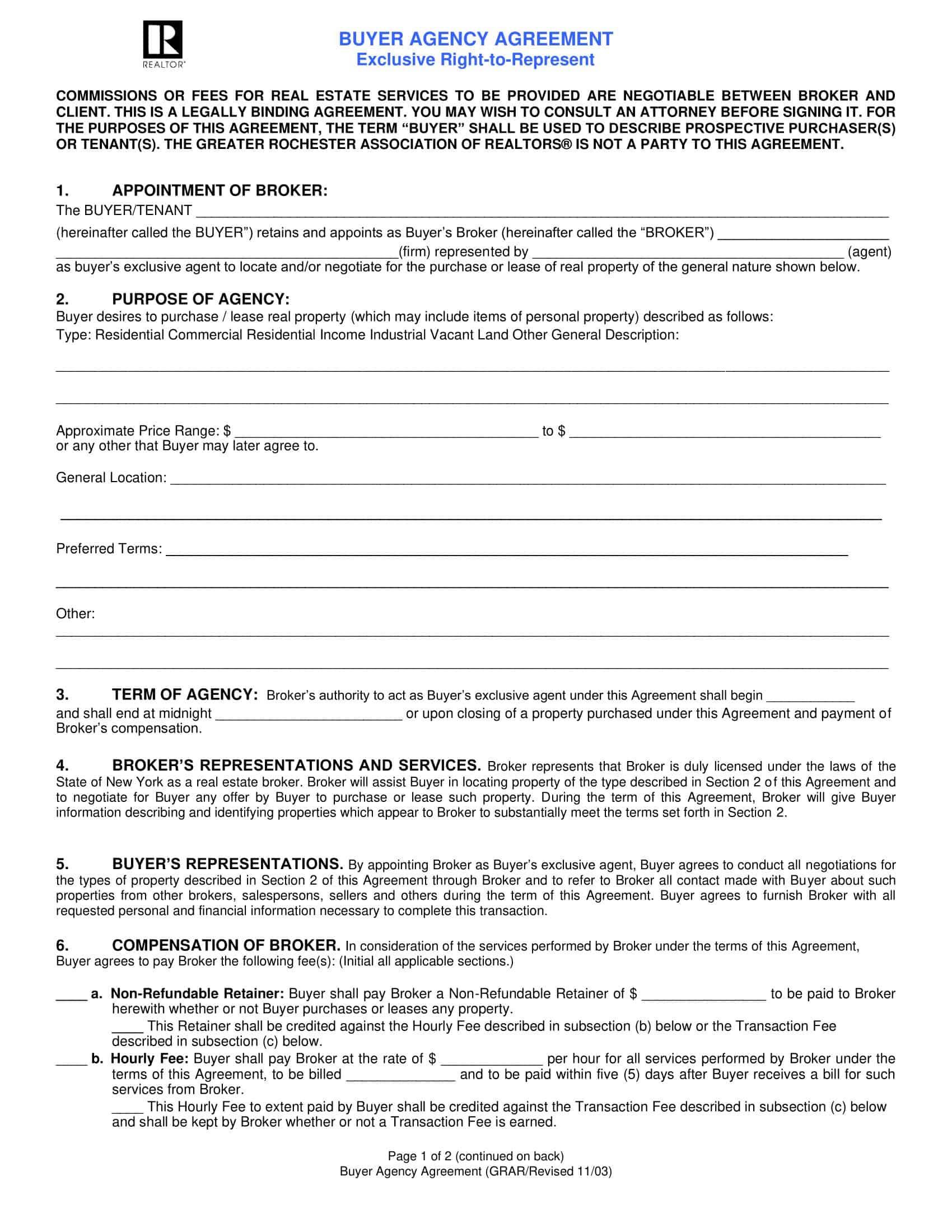
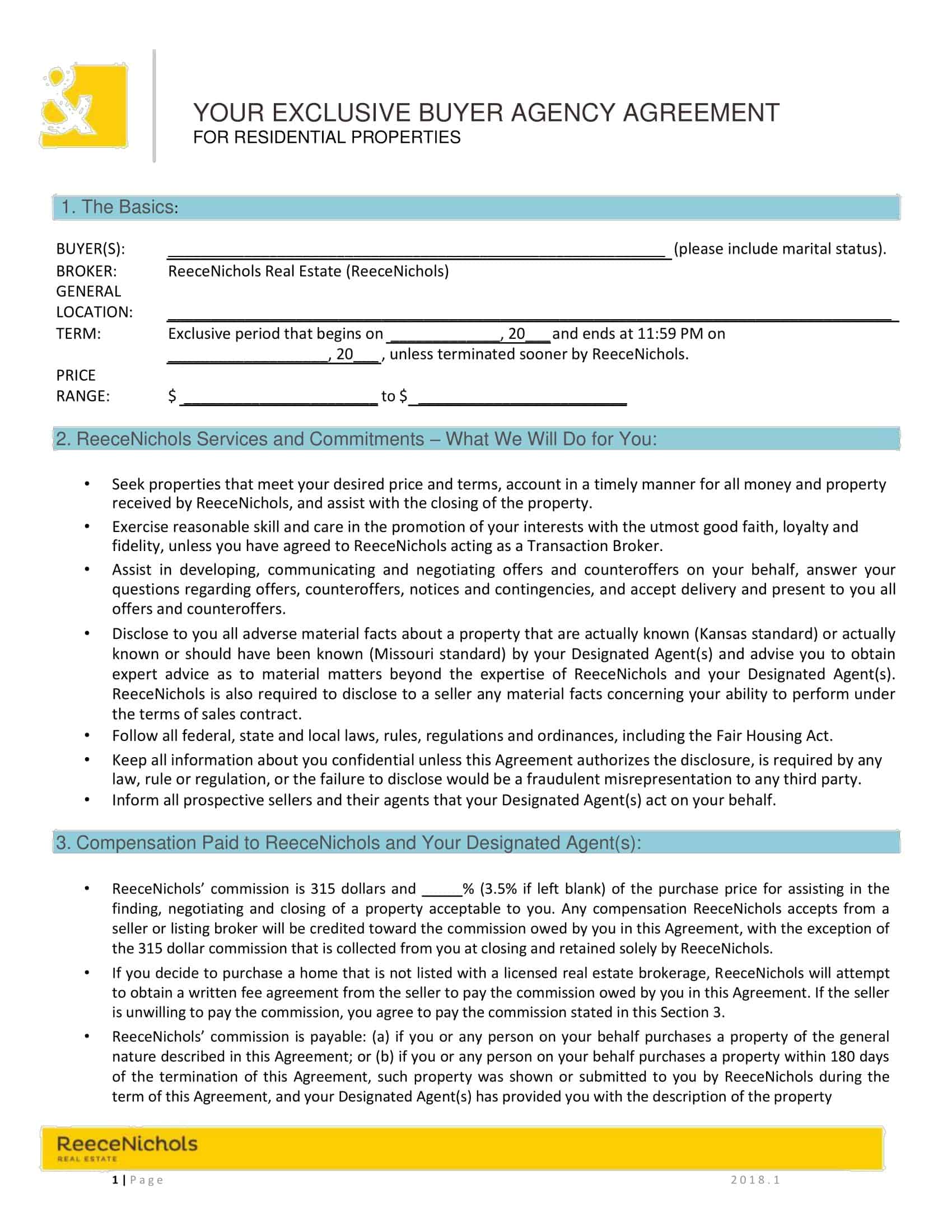
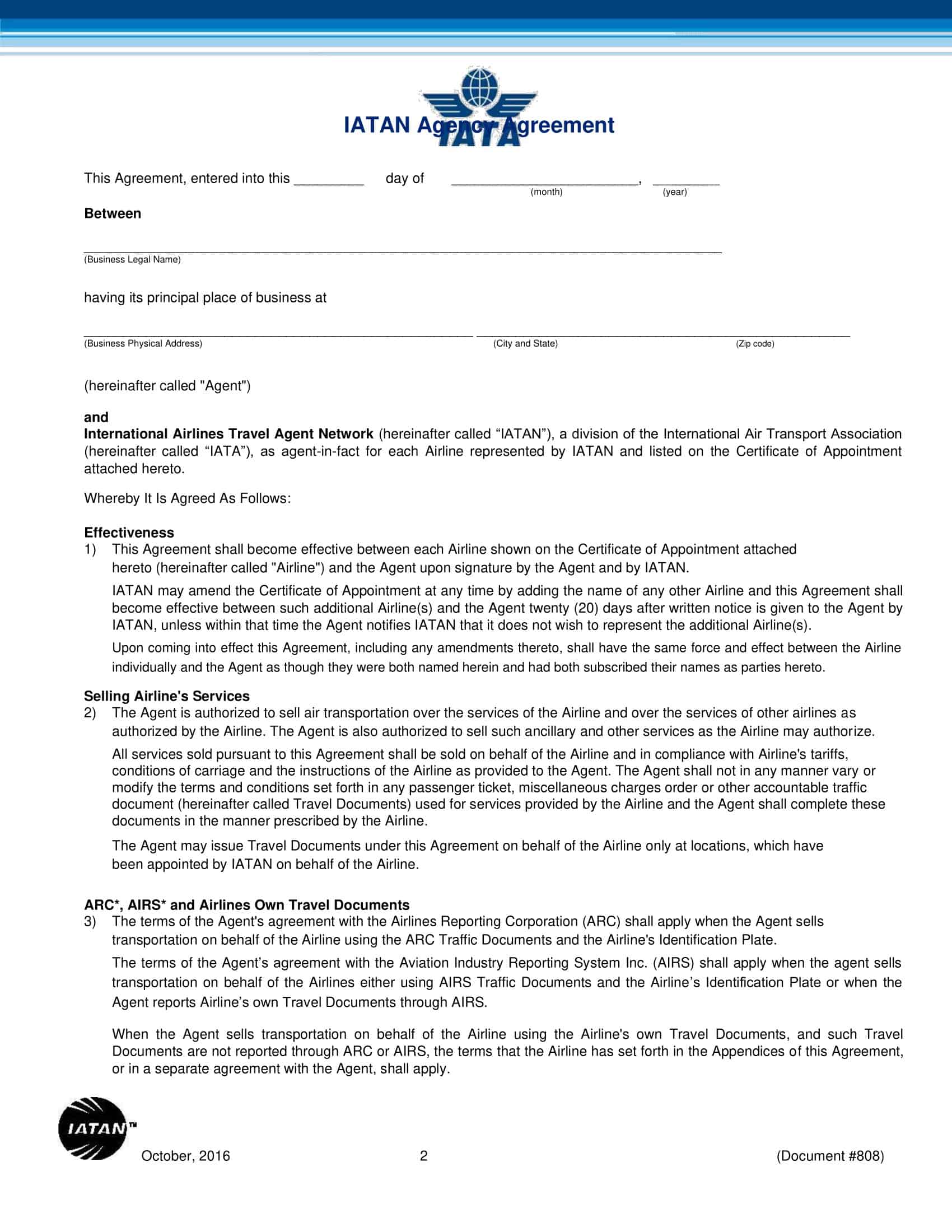

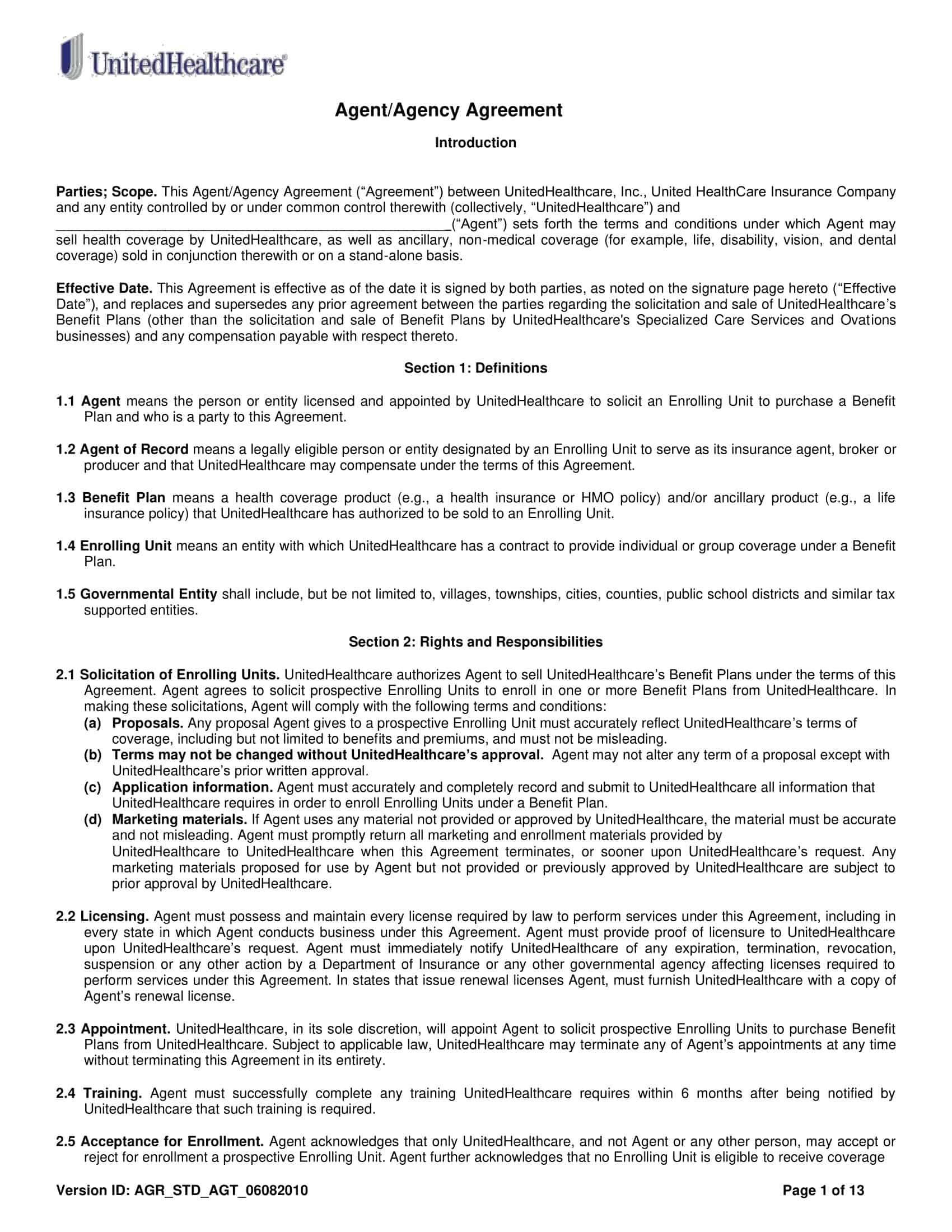
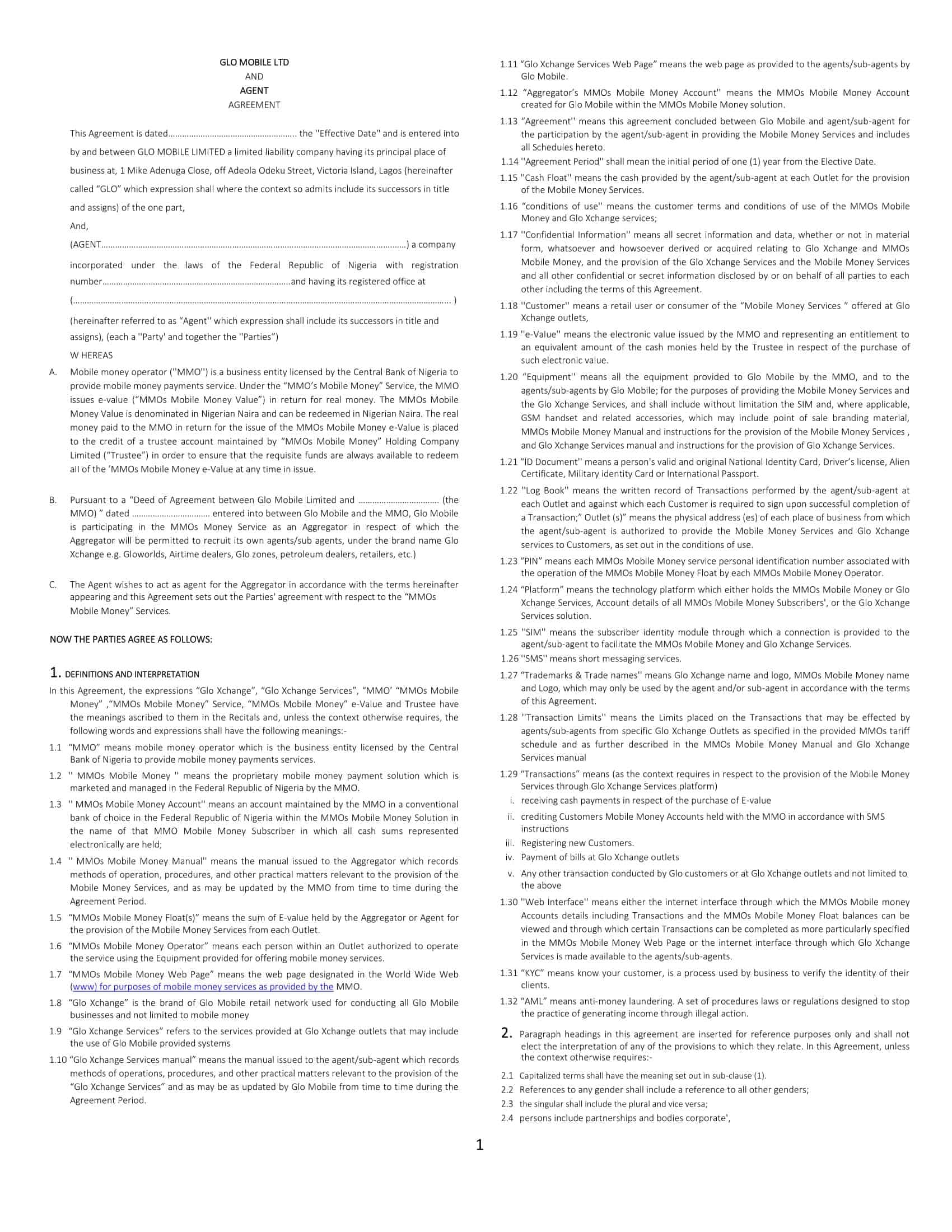
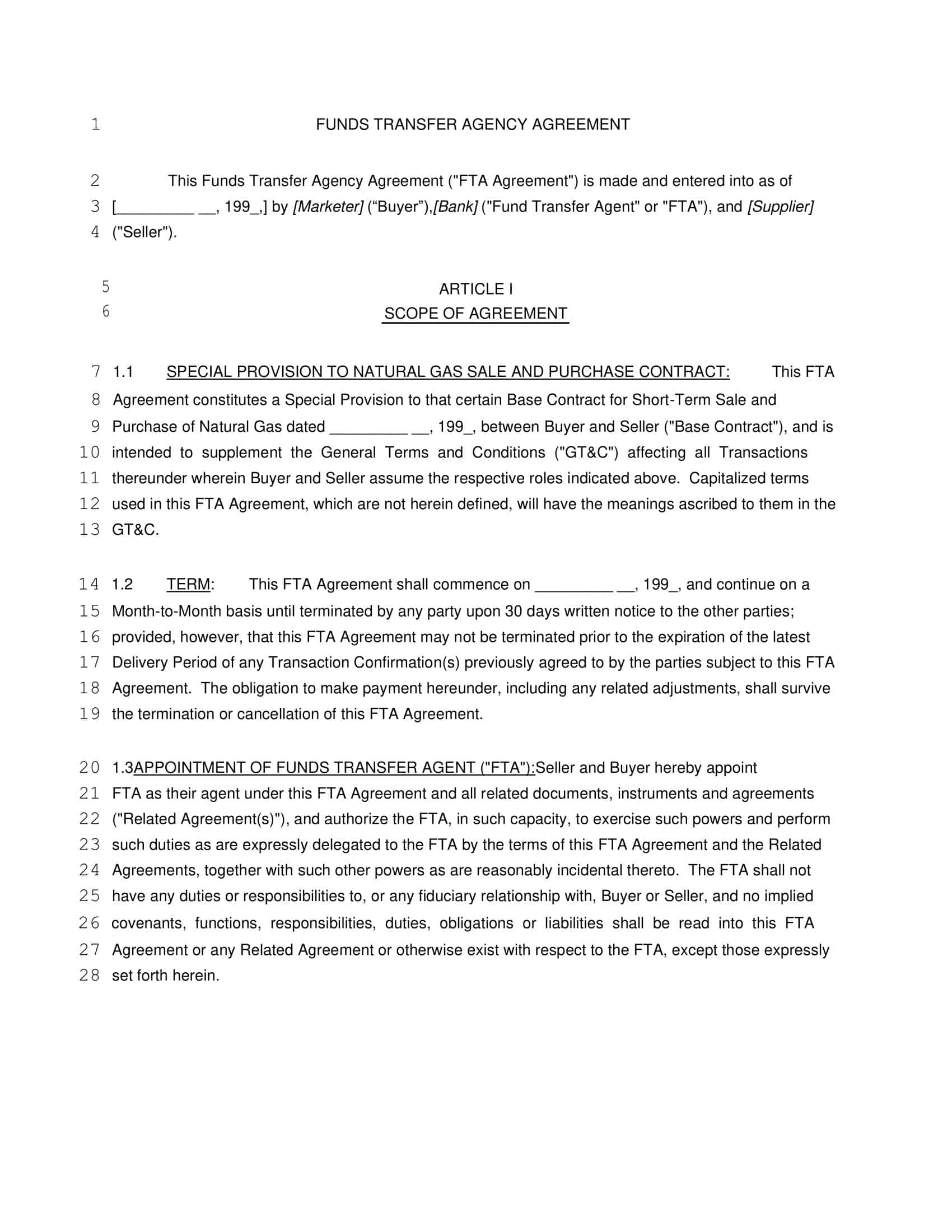
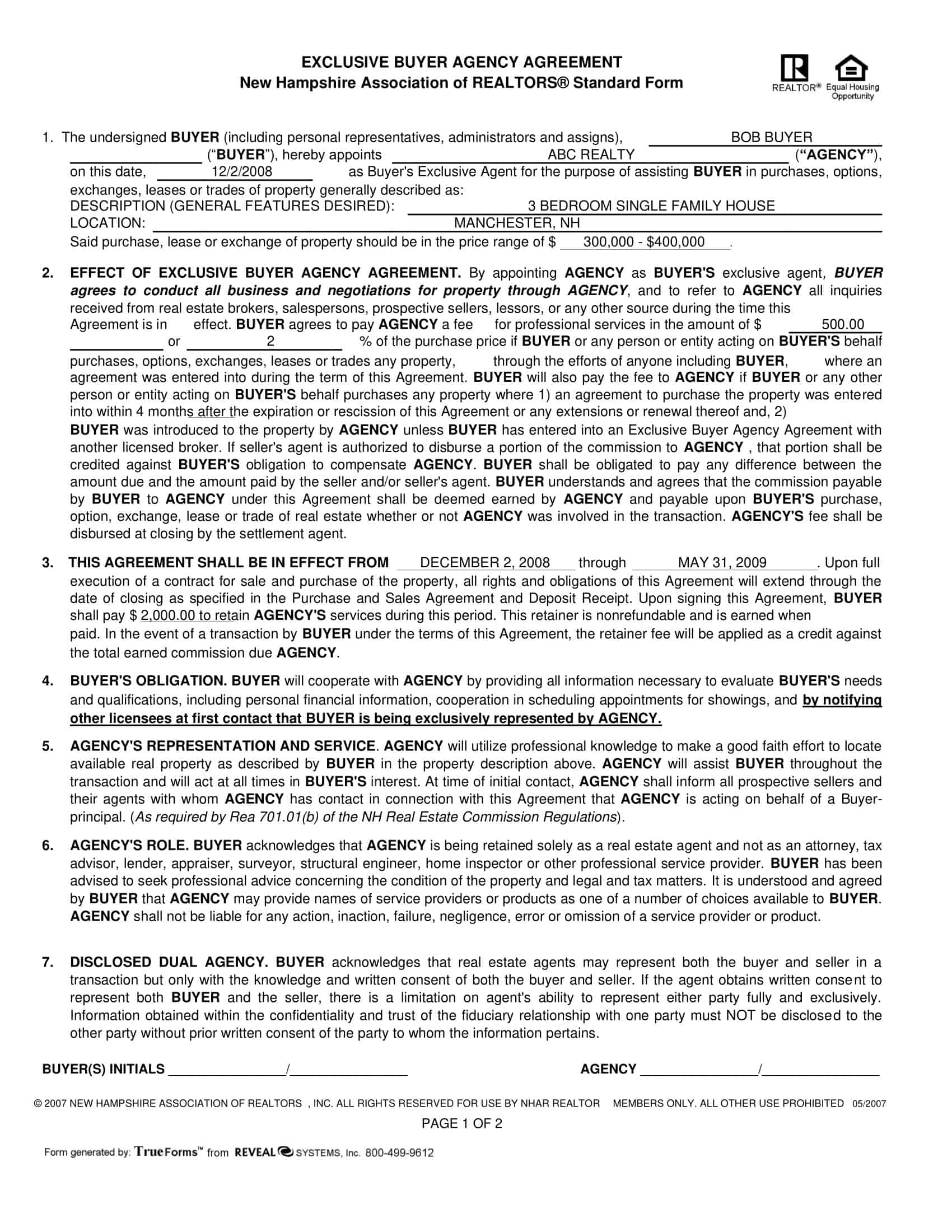
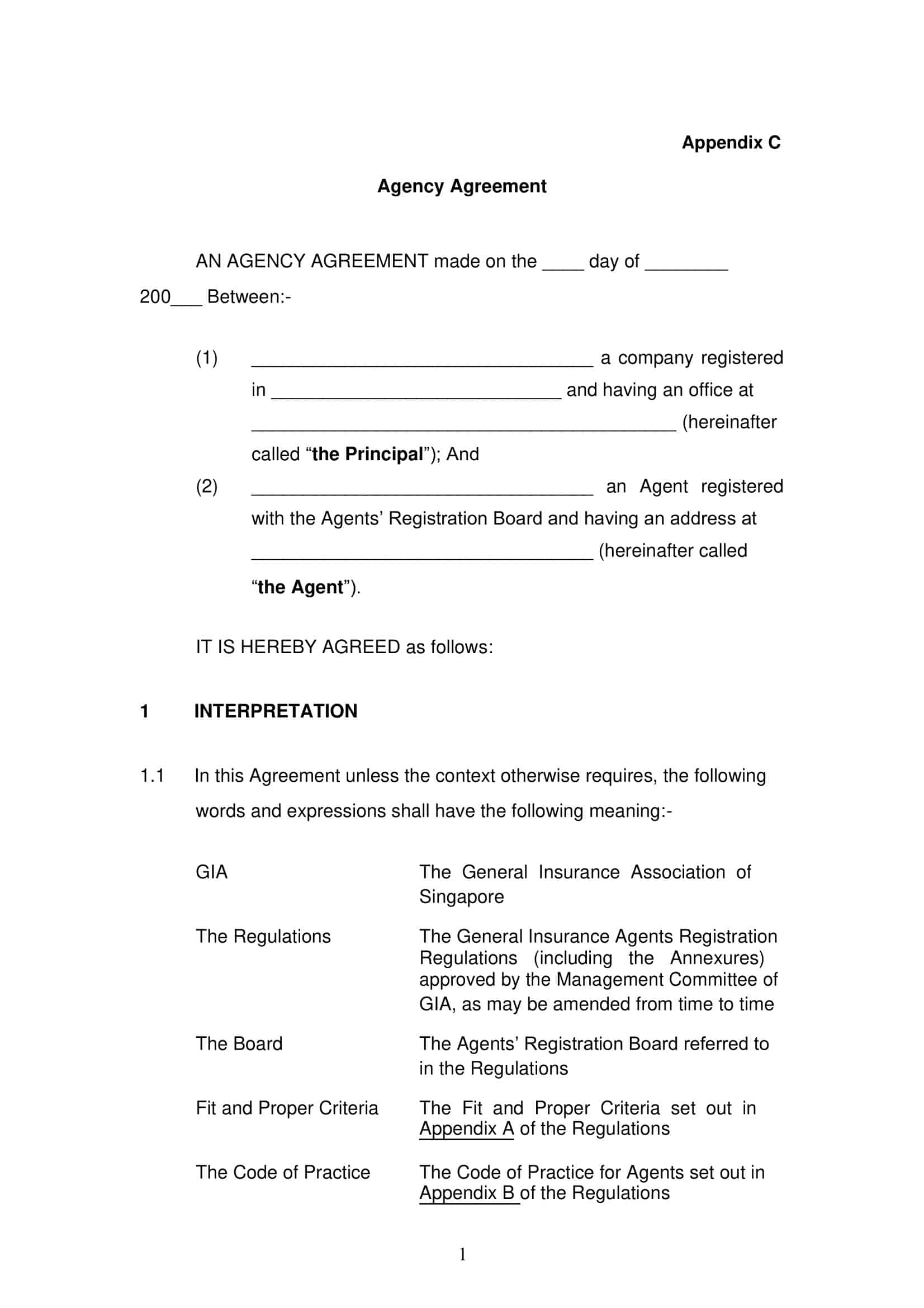
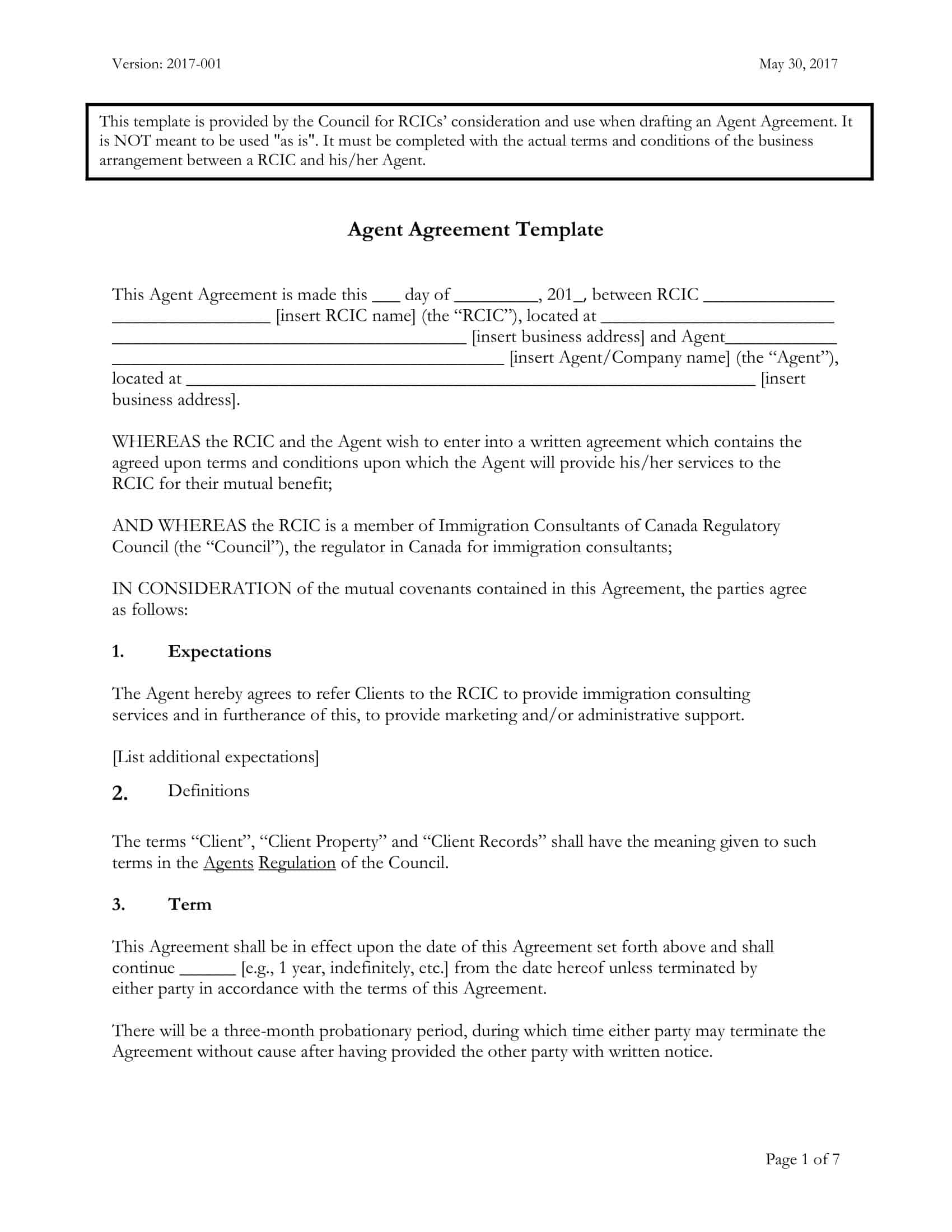
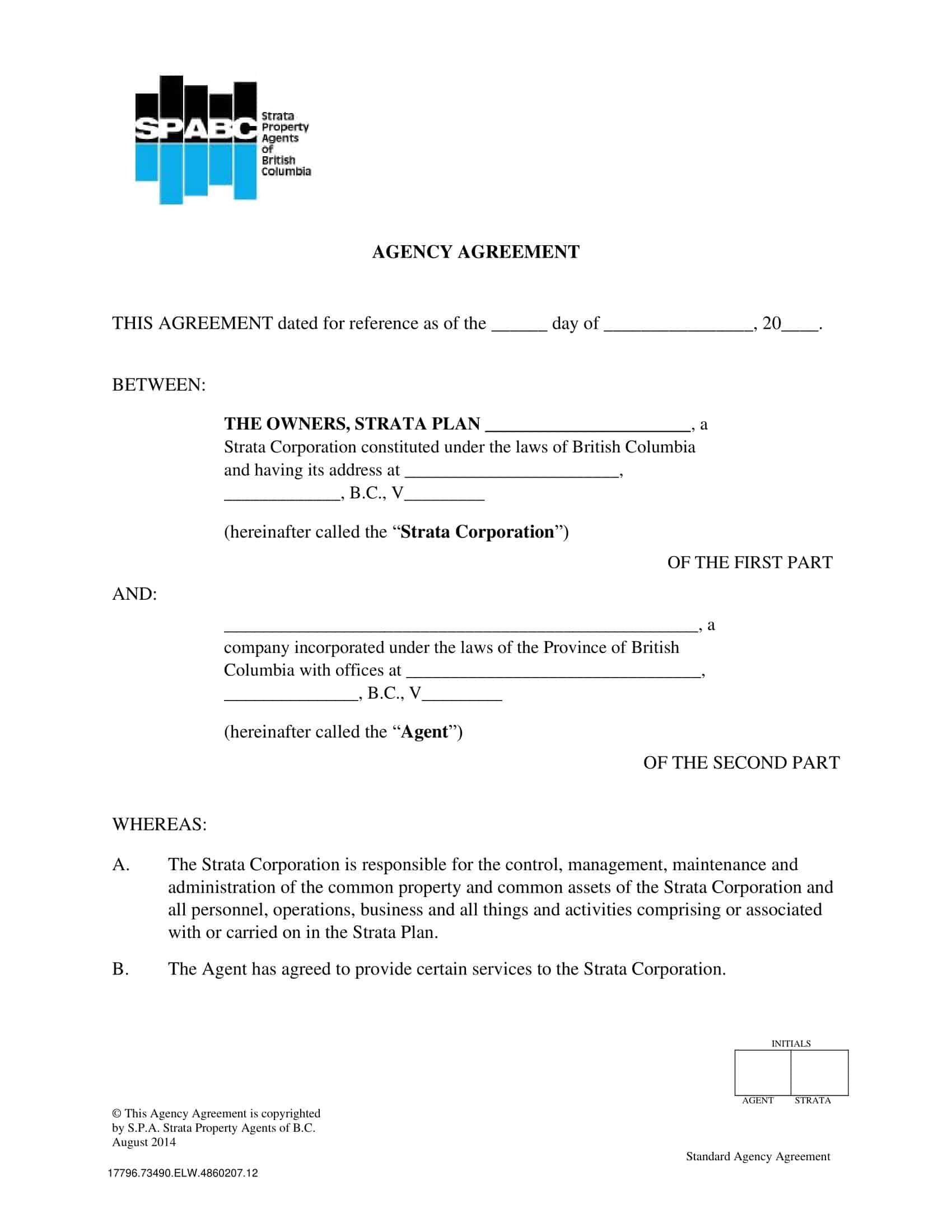


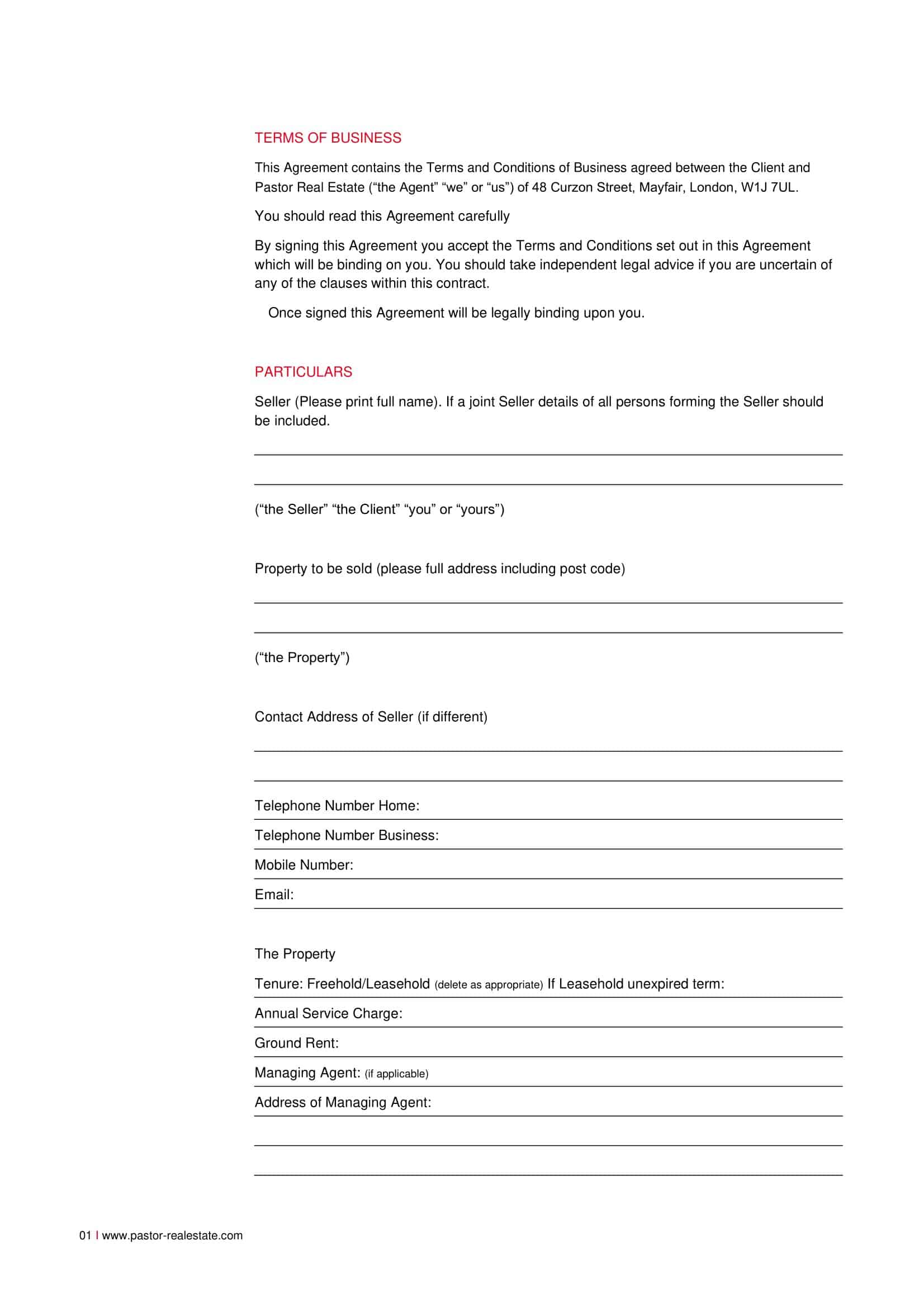
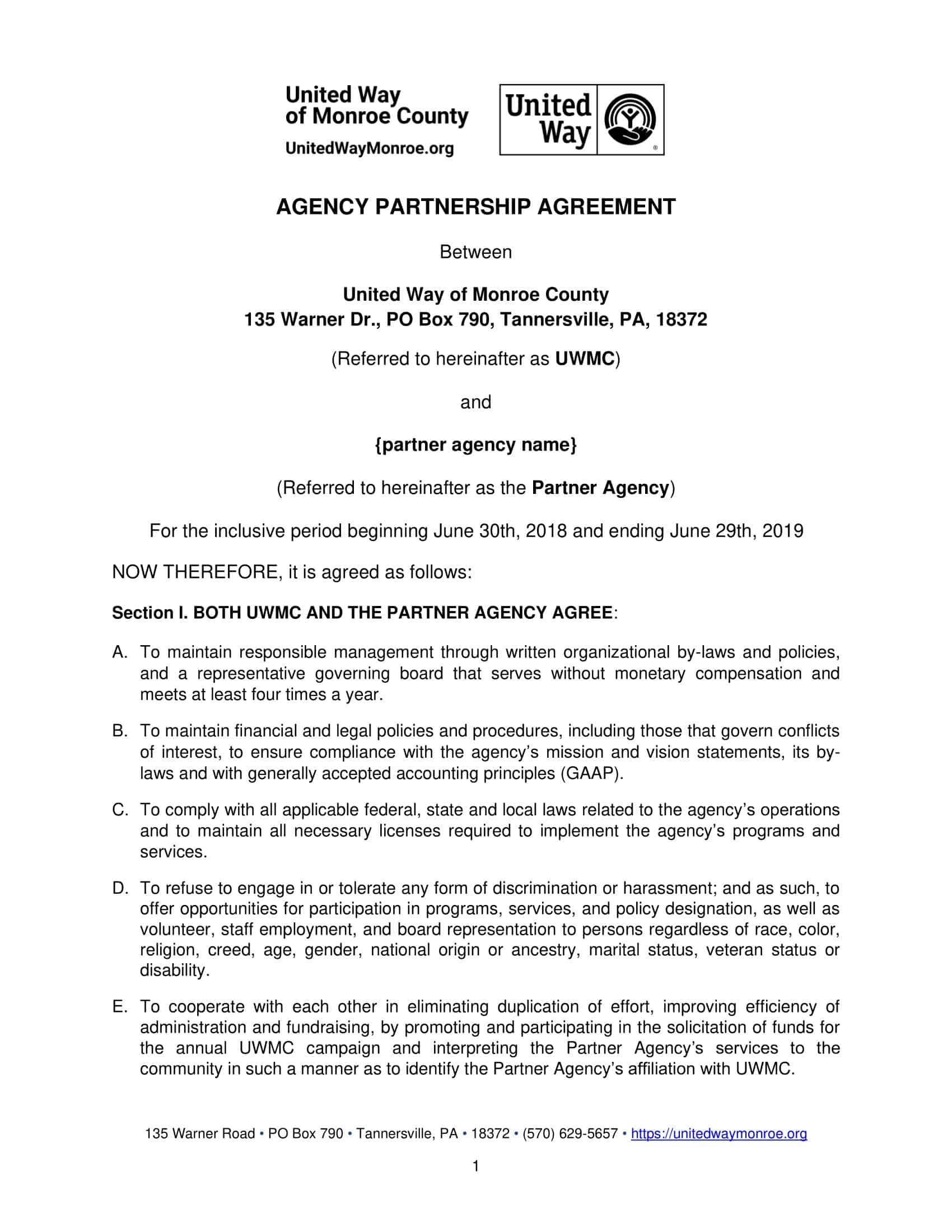
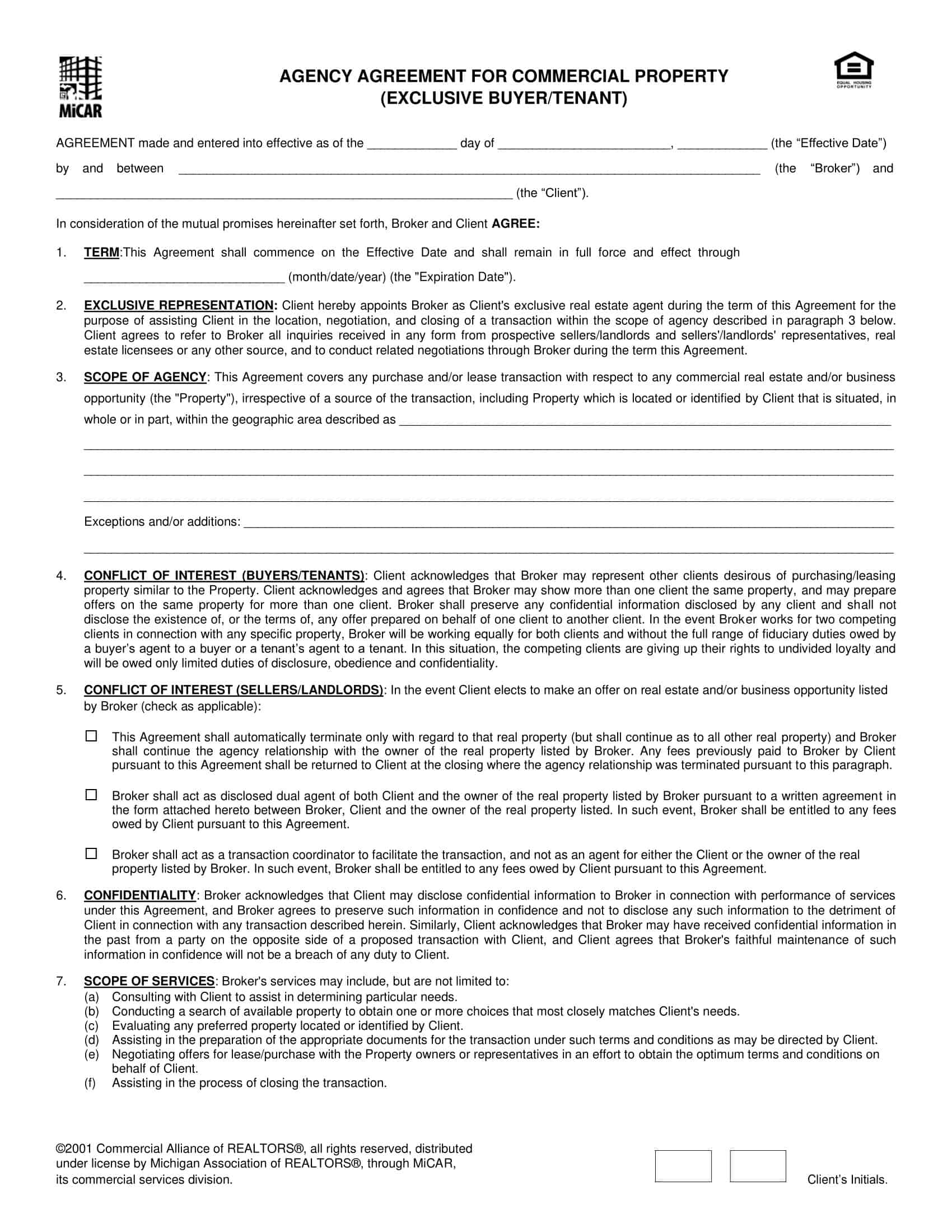
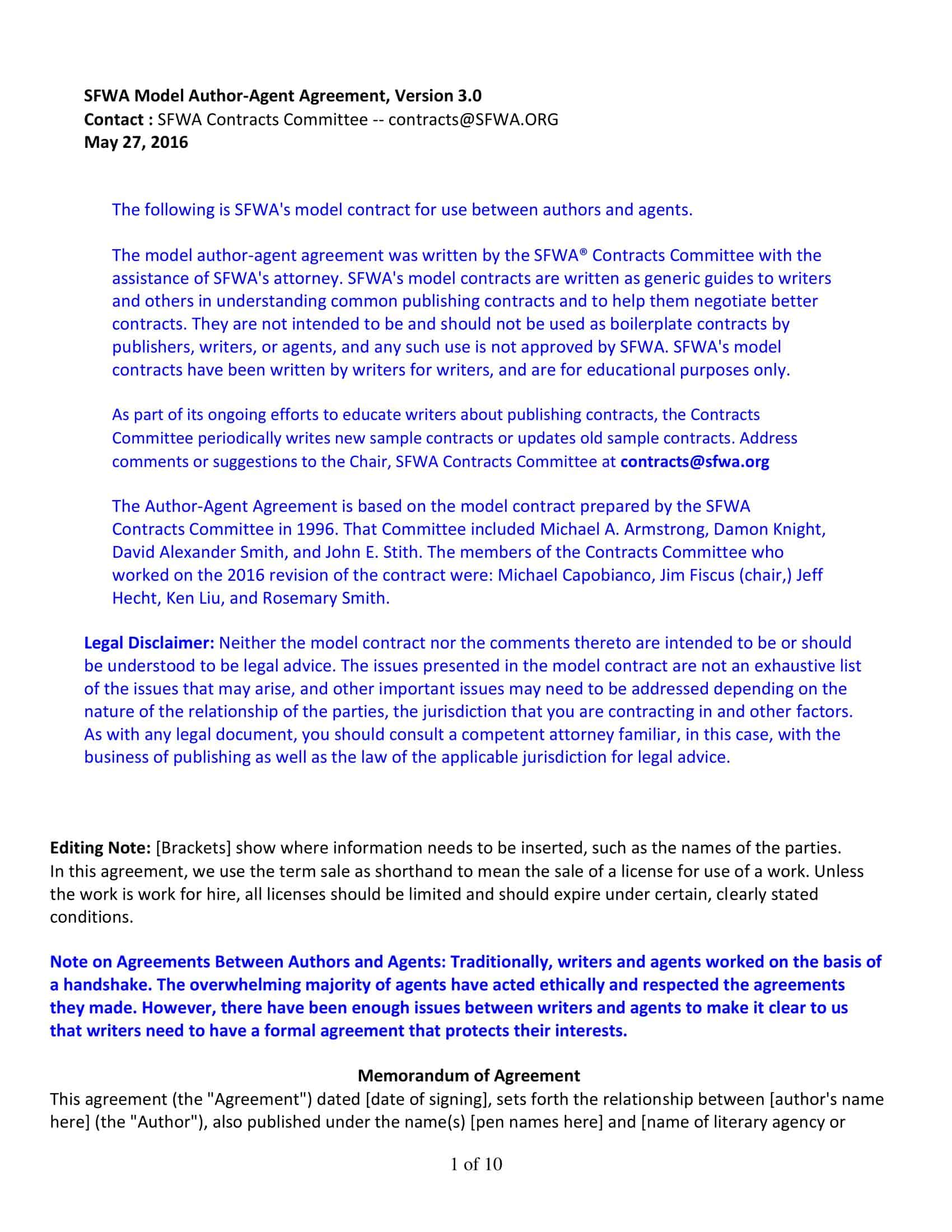

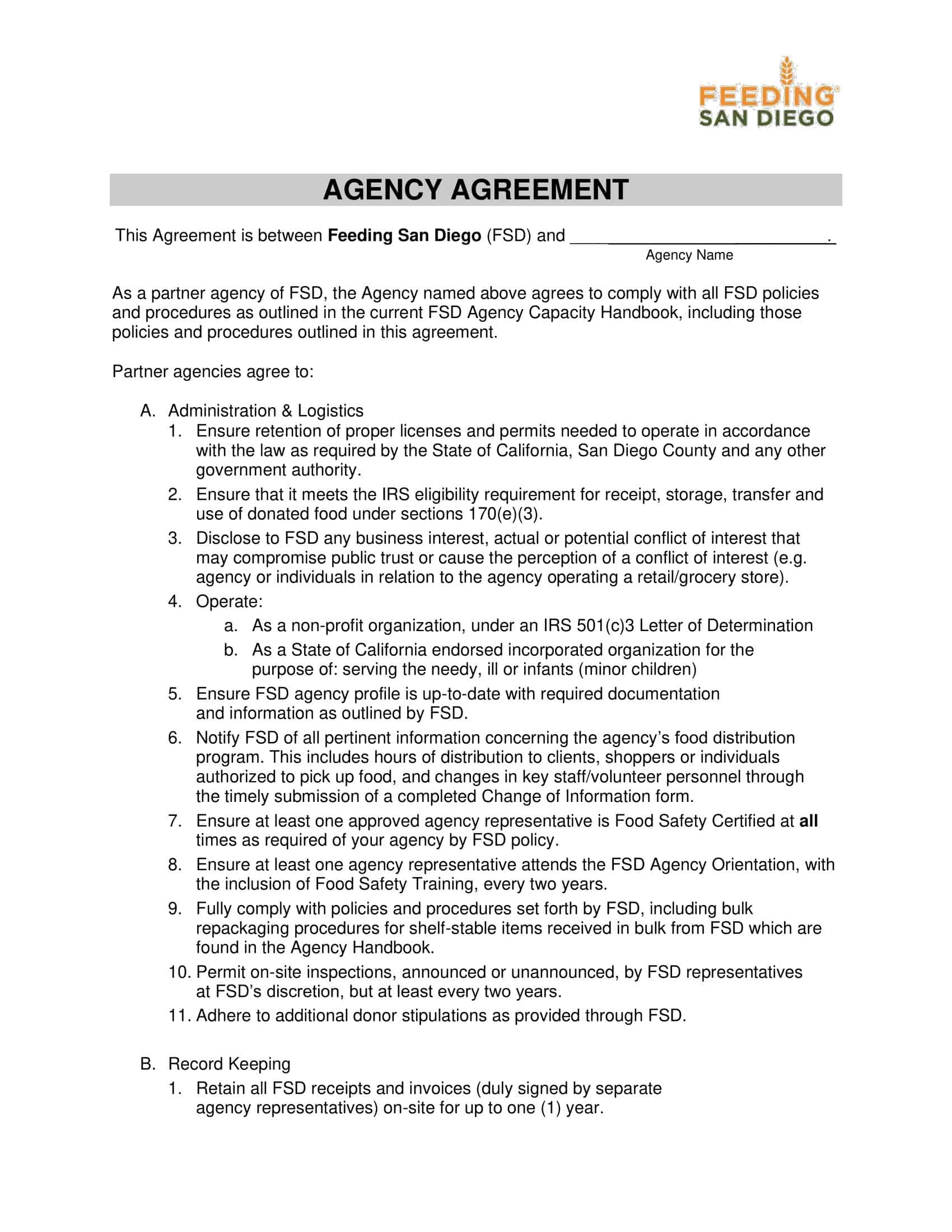

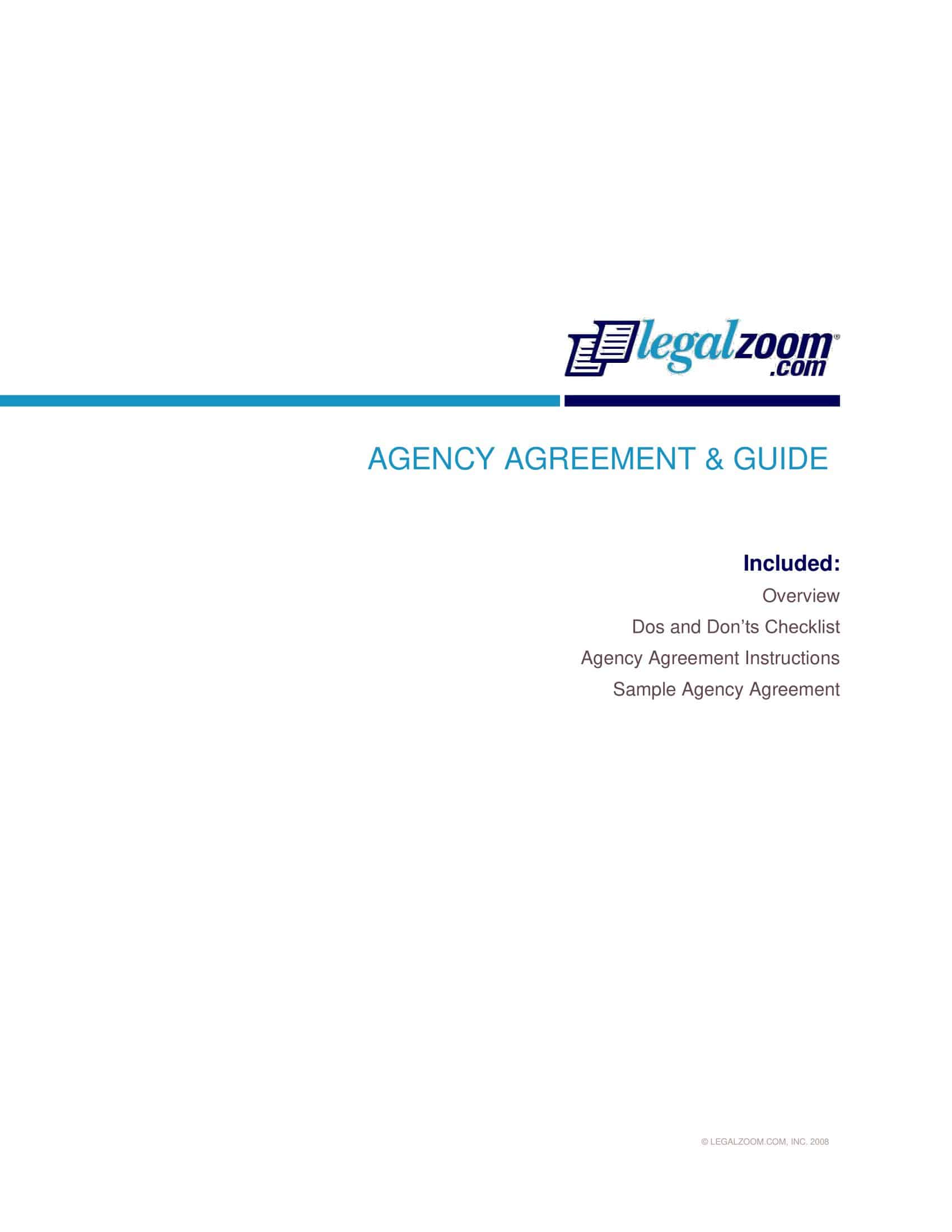

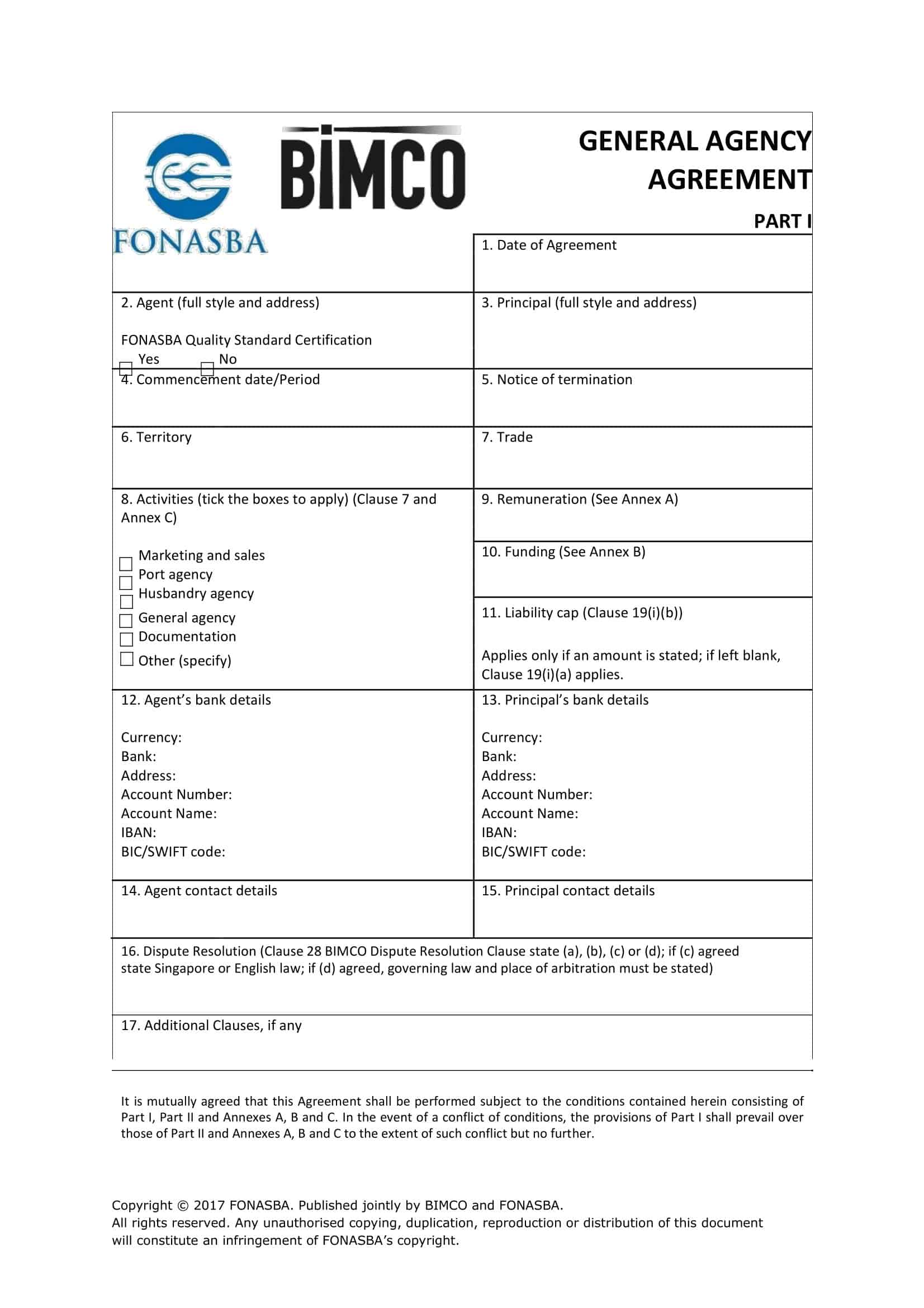

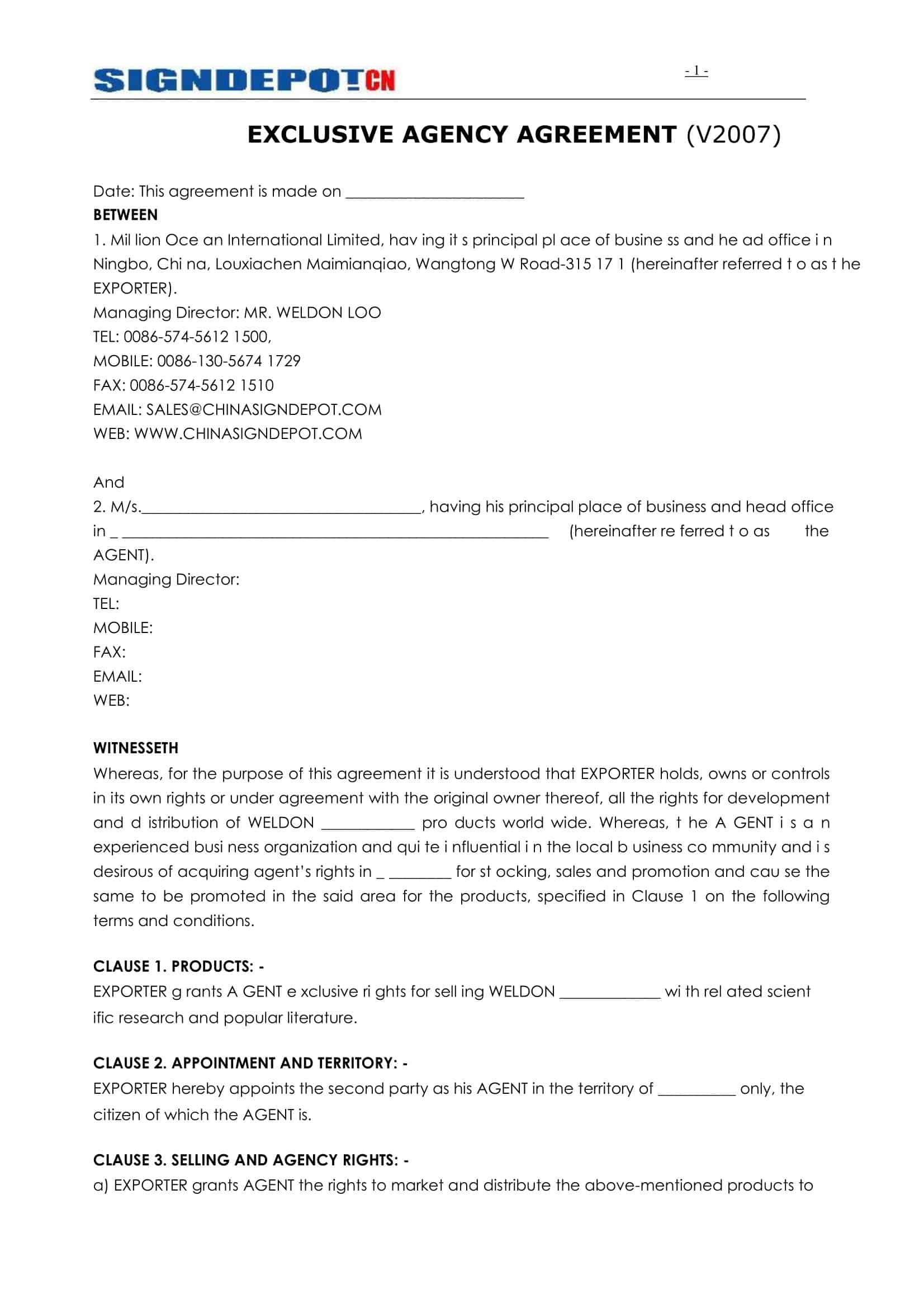


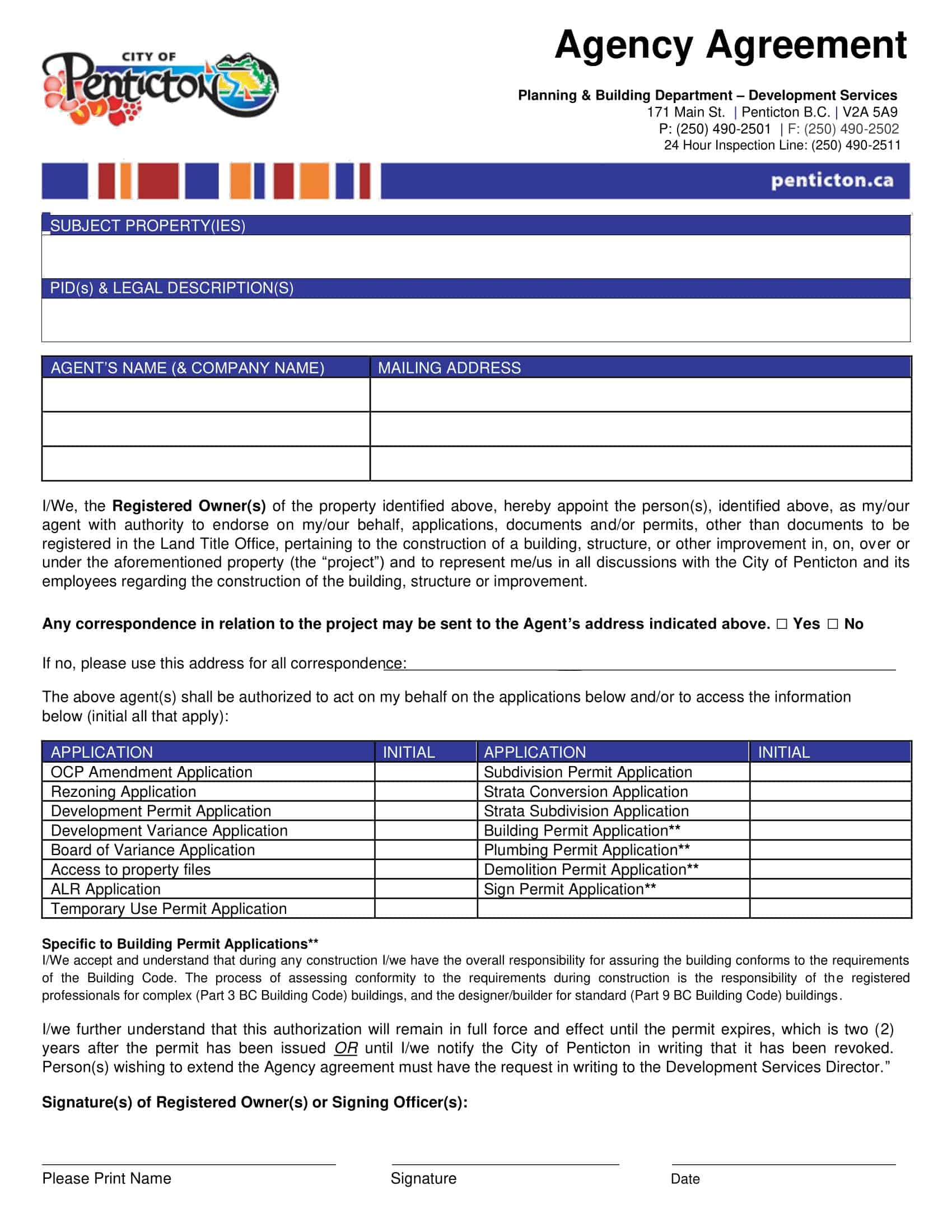
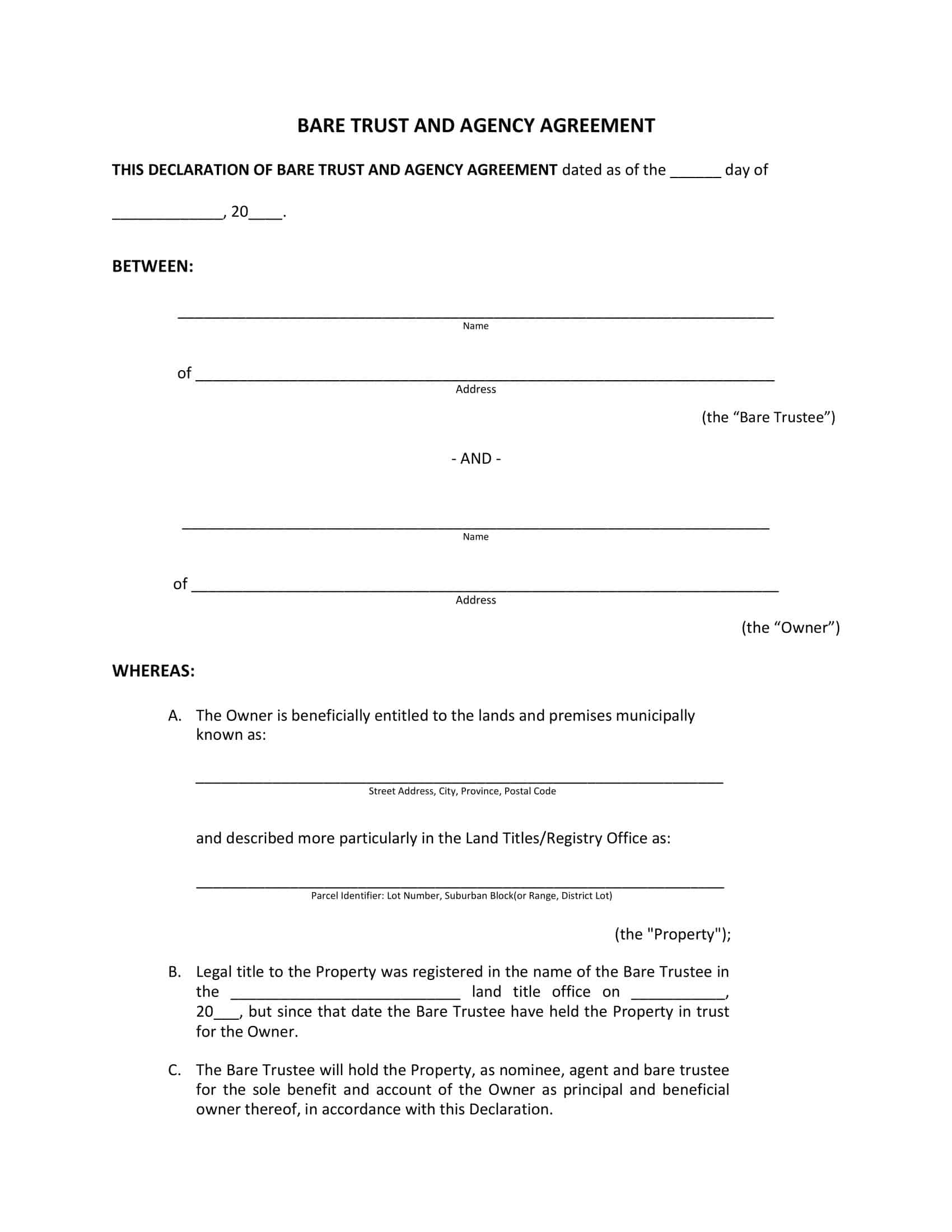




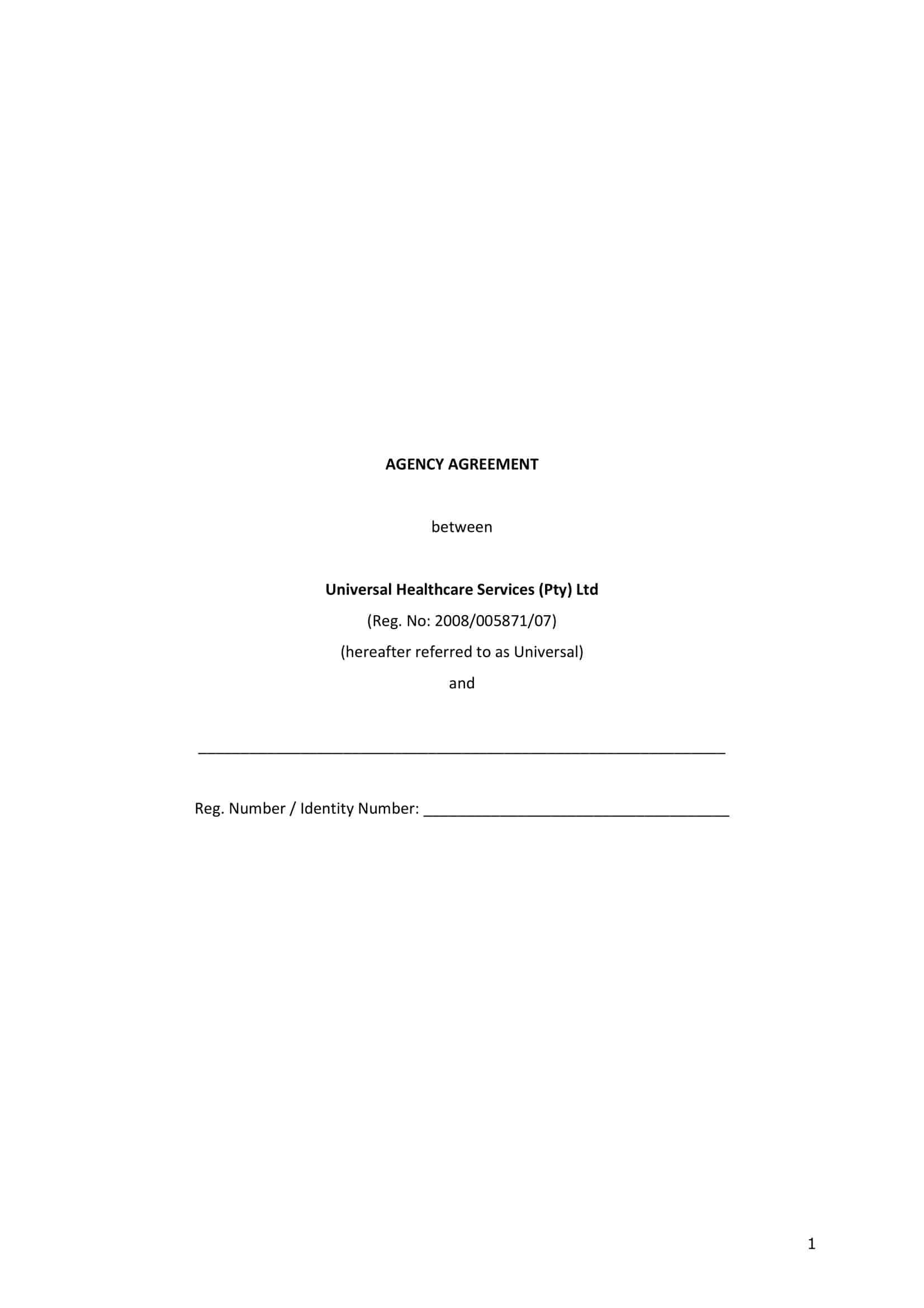

![Free Printable Roommate Agreement Templates [Word, PDF] 1 Roommate Agreement](https://www.typecalendar.com/wp-content/uploads/2023/06/Roommate-Agreement-150x150.jpg)
![Free Printable Payment Agreement Templates [PDF, Word] 2 Payment Agreement](https://www.typecalendar.com/wp-content/uploads/2023/05/Payment-Agreement-1-150x150.jpg)
![Free Printable Credit Card Authorization Form Templates [PDF, Word, Excel] 3 Credit Card Authorization Form](https://www.typecalendar.com/wp-content/uploads/2023/06/Credit-Card-Authorization-Form-150x150.jpg)
